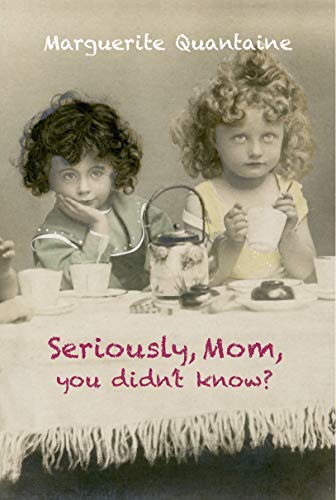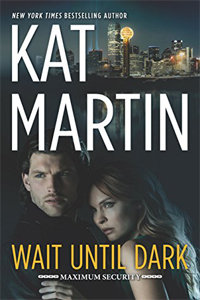The 2020 Short Story Award
April 23, 2020 by Bethlehem Writers Group in category From a Cabin in the Woods by Members of Bethlehem Writers Group tagged as 2020 Short Story Award, Bethlehem Writers Roundtable Short Story Award, Fur Feather & Scales, Peter Abrahams, Spencer Quinn
It’s time!
The 2020 Short Story Award
Deadline is April 30th!
Bethlehem Writers Roundtable seek animal stories (broadly interpreted) of 2000 words or fewer.
First Place winner will be considered for publication in their newest “Sweet, Funny, and Strange” anthology:
Fur, Feathers, & Scales: Sweet, Funny, and Strange Animal Tales
The latest of their “Sweet, Funny, and Strange” Anthologies
See Submission Guidelines
The 2020 Guest Judge

Peter Abrahams is the Edgar Award winning author of thirty-eight novels including The Right Side, The Fan, A Perfect Crime, and the Echo Falls series for younger readers.
Under his pen name, Spencer Quinn, he writes the New York Times best-selling Chet and Bernie series, as well as the Queenie and Arthur series for younger readers.
Abrahams was born in Boston, graduated from Williams College, and lives on Cape Cod.
You read an interview of Mr. Abrahams here.
Previous BWR Short Story Award Judges
2012–Jonathan Maberry
2013–Hank Phillippi Ryan
2014–Rebecca Forster
2015–Curtis Smith
2016–Marisa A. Corvisiero
2017–Carrie Vaughn
2018–Kimberly Brower
2019–John Grogan
To submit a story
0 0 Read moreChallenges of Writing on the Road
April 13, 2020 by Bethlehem Writers Group in category From a Cabin in the Woods by Members of Bethlehem Writers Group, Writing tagged as finding time to write, Making time to write, writing
I’ve been writing for a lot of years. It started somewhere in my corporate career when the girls were little, with short stories I’d read to them for birthdays and holidays. First book I’d written began as a story to celebrate my oldest daughter’s 12th birthday. That’s when the muse came a calling, and next I know, the story was over 300 words. It had all the faux pas of a newbie, repeating words, passive voice, minimal sensory and bad spelling (didn’t have spellcheck in those days). I had it bound as a hard copy, gold lettering for the title – cost me a fortune back then, but it was worth it. She liked it so much; I wrote a sequel of similar length. It is still one of my daughter’s most precious possessions.
The muse took up residence, and it wasn’t to be denied. With a job that had me boarding planes weekly, how was I supposed to satisfy the writing urge? Weekends were out. That was family time—and chores—and honey-dos—and kid’s events . . . I learned to access time slots while a prisoner of an airplane (seats were bigger then) and forgo watching hotel television at night (there wasn’t anything worth watching anyway). Can’t write on a plane anymore unless in first class. Coach seating is a sardine tin where we’re all a little heavier, the tray table might fit a drink glass with a deck of cards, and the seat in front of me is maybe ten inches from my nose.
At home, I’ve got the writing cave and silence, where the muse happily homesteads, ready to fill my thoughts with new directional themes. When I’m traveling, almost always with my wife/kids/grandkids/siblings, it’s a non-stop cornucopia of distractive activity, surrounded by the din of fellow humans. The muse had become accustomed to the safe zone of my writing cave and doesn’t appreciate the competition for my attention. No sooner do I sit down at the laptop, somebody calls my name.
Why don’t I write at night like I used to, when things quiet down? Unlike many writers who thrive on burning the midnight oil, I have become a morning writer. The muse is fresh, unfettered by the noise of life. Skipping the cocktail hour might help, but it’s the only time my wife and I convene to compare notes of the day, eat dinner, then wait for the daily Facetime call from kids who are on western time (grandboys are rather insistent I take part). When traveling, I’m expected to be participative, and young folk participate after work. By the time it all ends, the muse “has left the building”.
So, what’s a morning writer to do? For short trips, I might do some editing, or compose a few notes of the current project, which is kind of aggravating for the muse and I. We’re both hardcore pantsers. Plotting gives us hives. On the long winter forays where we’re domiciled near the kids out west, I go in search of a quiet haven. Local library is a good start, but it’s best to know when toddler reading hour is scheduled. Last time I went, a little nose-miner saddled up to me while I was typing, begging to crawl in my lap. It’s enough to instill fear in today’s times. We rent a condo when visiting mother down south. Most have nice gathering areas that nobody uses in the morning. Again, awareness of scheduling is important. The local women’s club du jour might show up, ask a lot of embarrassing questions, then seduce me to join them. Last year’s rental had a front-row seat at the ladies seventh-hole tee box. All day long, whack—thump—followed by ample cussing. And to think many of them were grandmothers.
I may go days, or weeks, writing nothing meaningful. I grab whatever opportunity arises. When I return to the word processor, the muse is waiting with a head shake and impatient foot-tapping, but ready to rock. Booting up after a long absence, the magic is even more special. I guess the saying: “absence makes the heart grow fonder”, works for us writers as well.

DT Krippene is a contributing author in the recent BWG’s paranormal anthology, Untethered (available below). A man buys a house for a price that is too good to be true, until he discovers the bizarre strings attached in “Hell of a Deal”. He’s also contributed articles for the Bethlehem Round Table Magazine with “Snowbelt Sanctuary”, and “In Simple Terms”.
A native of Wisconsin and Connecticut, DT Krippene deserted aspirations of being a biologist to live the corporate dream and raise a family. After six homes, a ten-year stint in Asia, and an imagination that never slept, his annoying muse refuses to be hobbled as a mere dream. Dan writes dystopia, paranormal, and science fiction. His current project is about a young man struggling to understand why he was born in a time when humans are unable to procreate and knocking on extinction’s door.
You can find DT on his website, and his social media links.
3 0 Read more
The 2020 Short Story Award
March 13, 2020 by A Slice of Orange in category From a Cabin in the Woods by Members of Bethlehem Writers Group tagged as 2020 Short Story Award, Bethlehem Writers Roundtable Short Story Award, Fur Feather & Scales, Peter Abrahams, Spencer Quinn
It’s time!
The 2020 Short Story Award is now open!
Bethlehem Writers Roundtable seek animal stories (broadly interpreted) of 2000 words or fewer.
First Place winner will be considered for publication in their newest “Sweet, Funny, and Strange” anthology:
Fur, Feathers, & Scales: Sweet, Funny, and Strange Animal Tales
The latest of their “Sweet, Funny, and Strange” Anthologies
See Submission Guidelines
The 2020 Guest Judge

Peter Abrahams is the Edgar Award winning author of thirty-eight novels including The Right Side, The Fan, A Perfect Crime, and the Echo Falls series for younger readers.
Under his pen name, Spencer Quinn, he writes the New York Times best-selling Chet and Bernie series, as well as the Queenie and Arthur series for younger readers.
Abrahams was born in Boston, graduated from Williams College, and lives on Cape Cod.
You read an interview of Mr. Abrahams here.
Previous BWR Short Story Award Judges
2012–Jonathan Maberr
2013–Hank Phillippi Ryan
2014–Rebecca Forster
2015–Curtis Smith
2016–Marisa A. Corvisiero
2017–Carrie Vaughn
2018–Kimberly Brower
2019–John Grogan
To submit a story
0 0 Read moreHappy (St.) Valentine’s Day! by Carol L. Wright
February 13, 2020 by Bethlehem Writers Group in category From a Cabin in the Woods by Members of Bethlehem Writers Group tagged as Research for Writers, Researching Historical Fiction, writing
Tomorrow is Valentine’s Day—the day for lovers—and the least popular day of the year for single folks whose lack of a partner becomes acutely apparent.
For a mystery writer, the day offers all sorts of inspiration. Love or lost love is, after all, one of the prime motivators for murder-most-foul. What mystery writer hasn’t used it a time or two—at least as a red herring?
But even more interesting to this mystery writer is the origin of St. Valentine’s Day. While it is ostensibly the feast day for a Roman Catholic saint named Valentine who died on February 14th, the record is not so clear on exactly who, why, or even when a man named Valentine became the patron saint of love, young people, and happy marriages.

By blackfish – Own work, CC BY-SA 3.0,
Legend holds that St. Valentine died around 269 CE. This was well before the Edict of Milan legalized the Christian church in 313, so records from that time are spotty at best. The Christian church was still being persecuted by Rome and much of what we know of its early history comes from oral tradition rather than contemporaneous records. So, in mystery writers’ terms, we don’t really know for sure whodunnit!
According to history.com, there are at least two viable candidates for the honor of being the mortal who became St. Valentine. They lived around the same time—the reign of Emperor Claudius II of Rome (214-270 CE). One was a simple priest. The other was the Bishop of Terni, Narnia, and Amelia. Even the church isn’t 100% sure which it was.
Stories abound about the saint and are accepted as truth—or truth adjacent—for the purposes of celebrating the feast day.
The official St. Valentine, according to the Vatican (catholic.org), died in 269 CE. He was an Italian priest (or bishop?) who, according to legend, proved the power of Christ by restoring the sight of the blind daughter of a judge (or jailer?) who had imprisoned him. As a result, Valentine was awarded his freedom. But it wasn’t long before Valentine was again arrested. His crime? Converting people, marrying couples (starting to see the connection to love and happy marriages?), and assisting Christians being persecuted by Rome. His motive for marrying couples might have been less about romance and more about pragmatism. Apparently, once married, men were excused from going to war. That’s a pretty big incentive.
He went too far when he tried to convert Emperor Claudius II, who ordered Valentine to renounce his faith or be put to death. He chose the latter and the death sentence was carried out in 269 CE (or perhaps 270, or 273, or 280 . . .) He is believed to have been buried on the Via Flaminia north of Rome, perhaps leaving a note behind for the girl whose blindness he cured, signed “Your Valentine.” Hmmm. Sound familiar?
Both the bishop and the priest are said to have performed similar miracles, met similar fates, died at a similar time, and buried at a similar place. No wonder we’re confused. Some speculate that the priest and the bishop were, in fact, one and the same.
But wait. Wikipedia tells us that there is at least one more candidate—another martyr who died on the same day in Africa. Not much else is known about this Valentine, but since they all are recorded as dying on February 14, who’s to say which is the St. Valentine?
But if we can’t be certain of which Valentine it was, or what year he died, how can we know that he died on February 14th?
As with other Christian holidays, St. Valentine’s day might have been placed in mid-February to help ease pagans’ transition to Christianity, supplanting the Roman Festival of Lupercalia which, according to thoughtco, was celebrated on February 13-15, and was said to purify the City of Rome and usher in a time of health and fertility.
Another theory is that since birds mate in mid-February, the patron saint of lovers feast day was placed then. Tennyson said it best in “Locksley Hall”: In the spring, a young man’s fancy lightly turns to thoughts of love.
The truth about Valentine will never be settled. When, in 496 CE, Pope Gelasius I first included Valentine’s name among those of other saints, he admitted the list was of people whose acts (miracles? good works? martyrdom?) were “known only to God.” No new evidence has turned up since to settle the question.

By Dnalor 01 – Own work, CC BY-SA 3.0
In 1969, the Roman Catholic church, perhaps due to this ambiguity, ceased requiring celebration of Valentine’s feast day, but it still counts him among the saints.
Whoever he was in life, St. Valentine is known, not only as the patron saint of love, happy marriages, and young people, but also of engaged couples, beekeepers, epilepsy, fainting, greetings, travelers, and plague (yikes!). Only a few of these mesh with our current, secular view of Valentine’s Day, but with selective editing, florists, card companies, and chocolatiers have ample excuse to make the most of this bright spot in the winter calendar.
So, who will be your Valentine? Let’s hope they are not shrouded in as much mystery as St. Valentine!
0 0 Read more
Announcing the 2020 Short Story Award
January 13, 2020 by Bethlehem Writers Group in category From a Cabin in the Woods by Members of Bethlehem Writers Group tagged as 2020 Short Story Award, Bethlehem Writers Roundtable Short Story Award, Fur Feather & Scales, Peter Abrahams, Spencer Quinn
It’s time!
The 2020 Short Story Award is now open!
Bethlehem Writers Roundtable seek animal stories (broadly interpreted) of 2000 words or fewer.
First Place winner will be considered for publication in their newest “Sweet, Funny, and Strange” anthology:
Fur, Feathers, & Scales: Sweet, Funny, and Strange Animal Tales
The latest of their “Sweet, Funny, and Strange” Anthologies
See Submission Guidelines
The 2020 Guest Judge

Peter Abrahams is the Edgar Award winning author of thirty-eight novels including The Right Side, The Fan, A Perfect Crime, and the Echo Falls series for younger readers.
Under his pen name, Spencer Quinn, he writes the New York Times best-selling Chet and Bernie series, as well as the Queenie and Arthur series for younger readers.
Abrahams was born in Boston, graduated from Williams College, and lives on Cape Cod.
You read an interview of Mr. Abrahams here.
Previous BWR Short Story Award Judges
2012–Jonathan Maberr
2013–Hank Phillippi Ryan
2014–Rebecca Forster
2015–Curtis Smith
2016–Marisa A. Corvisiero
2017–Carrie Vaughn
2018–Kimberly Brower
2019–John Grogan
To submit a story
0 0 Read moreAffiliate Links
A Slice of Orange is an affiliate with some of the booksellers listed on this website, including Barnes & Nobel, Books A Million, iBooks, Kobo, and Smashwords. This means A Slice of Orange may earn a small advertising fee from sales made through the links used on this website. There are reminders of these affiliate links on the pages for individual books.
Search A Slice of Orange
Find a Column
Archives
Featured Books
SERIOUSLY, MOM, YOU DIDN’T KNOW?
Life is a silver lining for those of us willing to scrape the surface of adversity.
More info →A LITTLE CHRISTMAS MAGIC
Christmas in Marietta, with all the trimmings, may be just the ticket.
More info →A LEAP INTO LOVE
Can a gentleman be too charming? The ladies of Upper Upton think so.
More info →Newsletter
Contributing Authors
Search A Slice of Orange
Find a Column
Archives
Authors in the Bookstore
- A. E. Decker
- A. J. Scudiere
- A.J. Sidransky
- Abby Collette
- Alanna Lucus
- Albert Marrin
- Alice Duncan
- Alina K. Field
- Alison Green Myers
- Andi Lawrencovna
- Andrew C Raiford
- Angela Pryce
- Aviva Vaughn
- Barbara Ankrum
- Bethlehem Writers Group, LLC
- Carol L. Wright
- Celeste Barclay
- Christina Alexandra
- Christopher D. Ochs
- Claire Davon
- Claire Naden
- Courtnee Turner Hoyle
- Courtney Annicchiarico
- D. Lieber
- Daniel V. Meier Jr.
- Debra Dixon
- Debra H. Goldstein
- Debra Holland
- Dee Ann Palmer
- Denise M. Colby
- Diane Benefiel
- Diane Sismour
- Dianna Sinovic
- DT Krippene
- E.B. Dawson
- Emilie Dallaire
- Emily Brightwell
- Emily PW Murphy
- Fae Rowen
- Faith L. Justice
- Frances Amati
- Geralyn Corcillo
- Glynnis Campbell
- Greg Jolley
- H. O. Charles
- Jaclyn Roché
- Jacqueline Diamond
- Janet Lynn and Will Zeilinger
- Jaya Mehta
- Jeannine Atkins
- Jeff Baird
- Jenna Barwin
- Jenne Kern
- Jennifer D. Bokal
- Jennifer Lyon
- Jerome W. McFadden
- Jill Piscitello
- Jina Bacarr
- Jo A. Hiestand
- Jodi Bogert
- Jolina Petersheim
- Jonathan Maberry
- Joy Allyson
- Judy Duarte
- Justin Murphy
- Justine Davis
- Kat Martin
- Kidd Wadsworth
- Kitty Bucholtz
- Kristy Tate
- Larry Deibert
- Larry Hamilton
- Laura Drake
- Laurie Stevens
- Leslie Knowles
- Li-Ying Lundquist
- Linda Carroll-Bradd
- Linda Lappin
- Linda McLaughlin
- Linda O. Johnston
- Lisa Preston
- Lolo Paige
- Loran Holt
- Lynette M. Burrows
- Lyssa Kay Adams
- Madeline Ash
- Margarita Engle
- Marguerite Quantaine
- Marianne H. Donley
- Mary Castillo
- Maureen Klovers
- Megan Haskell
- Melanie Waterbury
- Melisa Rivero
- Melissa Chambers
- Melodie Winawer
- Meriam Wilhelm
- Mikel J. Wilson
- Mindy Neff
- Monica McCabe
- Nancy Brashear
- Neetu Malik
- Nikki Prince
- Once Upon Anthologies
- Paula Gail Benson
- Penny Reid
- Peter J Barbour
- Priscilla Oliveras
- R. H. Kohno
- Rachel Hailey
- Ralph Hieb
- Ramcy Diek
- Ransom Stephens
- Rebecca Forster
- Renae Wrich
- Roxy Matthews
- Ryder Hunte Clancy
- Sally Paradysz
- Sheila Colón-Bagley
- Simone de Muñoz
- Sophie Barnes
- Susan Kaye Quinn
- Susan Lynn Meyer
- Susan Squires
- T. D. Fox
- Tara C. Allred
- Tara Lain
- Tari Lynn Jewett
- Terri Osburn
- Tracy Reed
- Vera Jane Cook
- Vicki Crum
- Writing Something Romantic
Affiliate Links
A Slice of Orange is an affiliate with some of the booksellers listed on this website, including Barnes & Nobel, Books A Million, iBooks, Kobo, and Smashwords. This means A Slice of Orange may earn a small advertising fee from sales made through the links used on this website. There are reminders of these affiliate links on the pages for individual books.















































